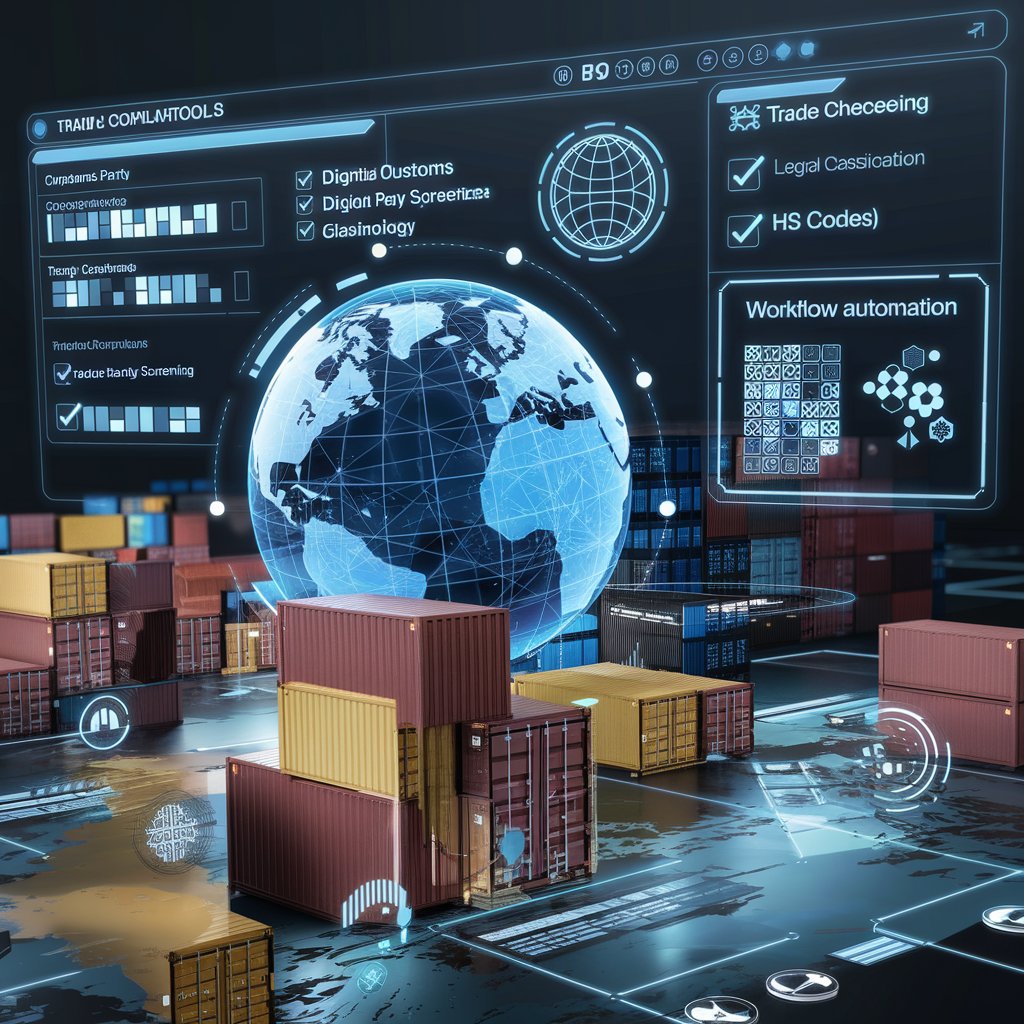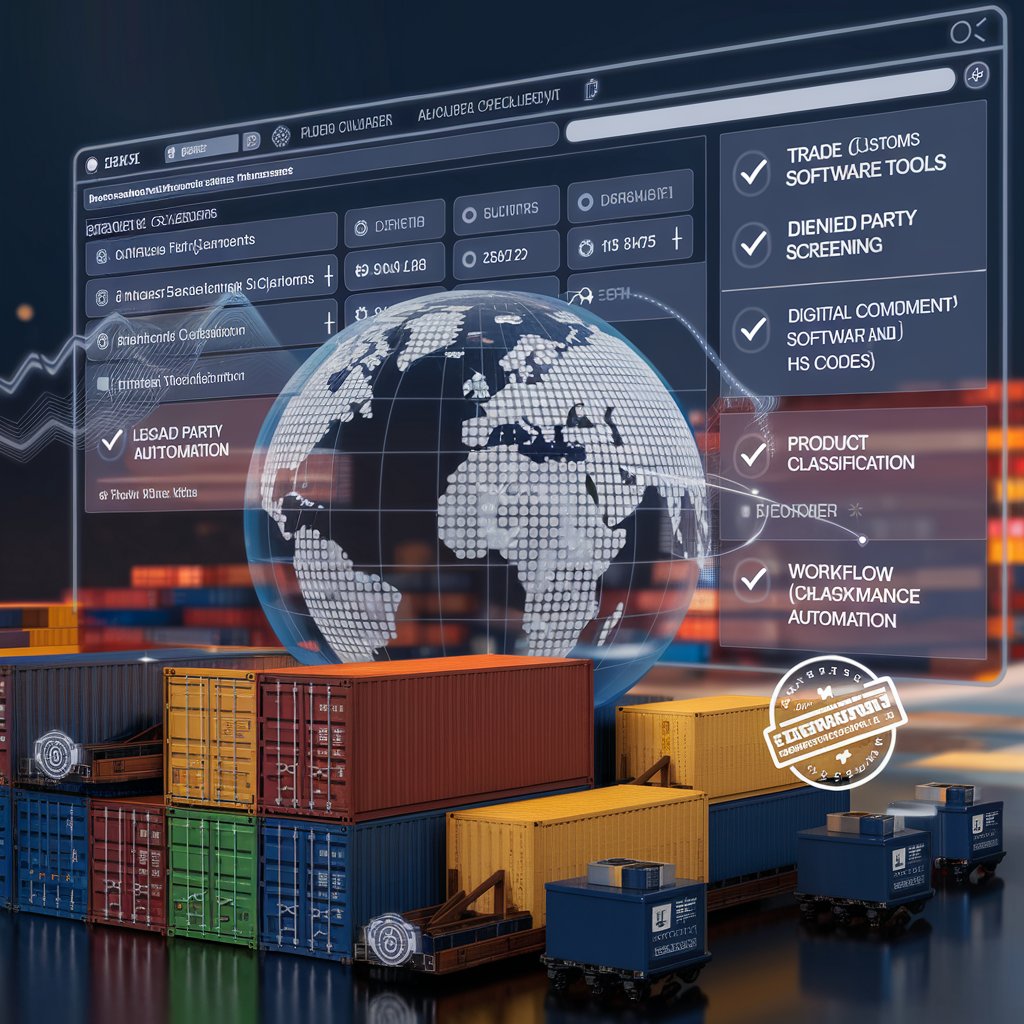Trade Compliance 101: Software Tools to Stay Compliant
This is where trade compliance software becomes a game-changer.

🚨 What Is Trade Compliance and Why It Matters
Trade compliance refers to following all legal regulations and rules related to the import and export of goods. These may include:
- Export Administration Regulations (EAR)
- Customs documentation requirements
- Tariff codes (HTS/HS)
- Denied party and embargoed country lists
- License management
Failure to comply can result in:
❌ Fines and legal penalties
❌ Shipment delays
❌ Seized cargo
❌ Damaged reputation

🛠️ Top Trade Compliance Software Tools (2025)
Here’s a look at some of the most effective tools freight forwarders and supply chain teams can add to their tech stack 👇
1. Amber Road / e2open
A robust enterprise-level solution for global trade management. Offers modules for classification, screening, documentation, and analytics.
🔹 Best for: Large enterprises with complex compliance needs
🔹 Key features: HS code automation, license determination, FTA qualification
2. Descartes Customs & Regulatory Compliance
Cloud-based platform that automates customs filings, product classification, and denied party screening. Integrates well with ERP and TMS.
🔹 Best for: Mid to large supply chains with customs needs
🔹 Key features: AEO/CTPAT compliance, document workflows, broker connectivity
3. Thomson Reuters ONESOURCE
Offers global compliance tools with a strong legal database. Used by multinational corporations to stay updated on changing trade laws.
🔹 Best for: Companies with legal-heavy compliance requirements
🔹 Key features: Regulatory change alerts, global content library, classification tools
4. Linbis Freight Management Software
While primarily a freight forwarder software, Linbis includes a compliance-focused document management suite that supports:
✅ Digital generation of customs documents
✅ Centralized document storage for audits
✅ Workflow tools for accuracy and traceability
✅ Integration with export/import workflows
🔹 Best for: Freight forwarders and logistics providers seeking all-in-one automation
🔹 Bonus: Cloud-based, scalable, and fast to deploy
5. SAP Global Trade Services (GTS)
An enterprise-grade module for businesses already running SAP. Covers customs filing, embargo checks, export control, and more.
🔹 Best for: Enterprises using SAP ERP
🔹 Key features: End-to-end global trade automation, license checks, analytics

🧠 Why Use Trade Compliance Software?
Trade compliance software automates and simplifies complex regulatory processes. It helps you:
✅ Screen customers and vendors against global watchlists
✅ Classify products correctly using harmonized codes
✅ File export/import documents digitally
✅ Manage licenses and country-specific rules
✅ Keep an audit trail for internal and external inspections
Without it, your team may be juggling outdated spreadsheets, manually checking government lists, and risking costly errors.

📊 Choosing the Right Tool: What to Look For
When evaluating trade compliance software, consider the following:
Feature | Why It Matters |
Watchlist Screening | Avoid violations by blocking restricted parties |
HS/HTS Code Management | Reduces errors in product classification |
Customs Documentation | Speeds up border clearance |
Integration Options | Ensures seamless workflows with ERP/TMS |
Audit Trail | Prepares you for inspections and audits |
Real-Time Updates | Keeps you compliant with ever-changing rules |
✅ Final Thoughts
In an era of increasing regulation and cross-border complexity, trade compliance software is no longer optional — it’s mission-critical.
Whether you’re managing a few export shipments per month or running a global logistics network, tools like Linbis, Descartes, and e2open help you stay compliant, efficient, and ready for anything.
Don’t wait for a customs penalty to rethink your compliance strategy. Automate now — and stay ahead.
